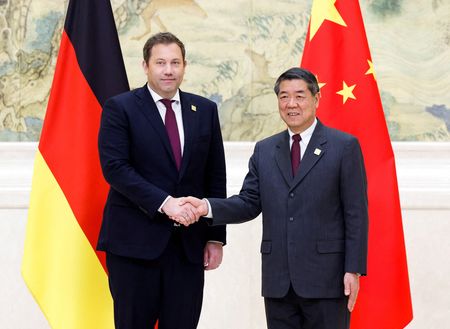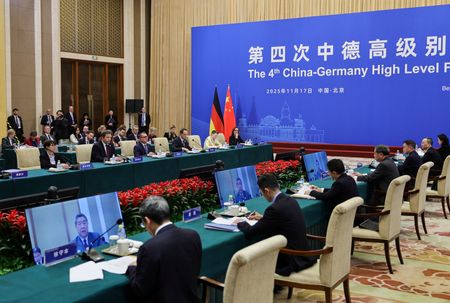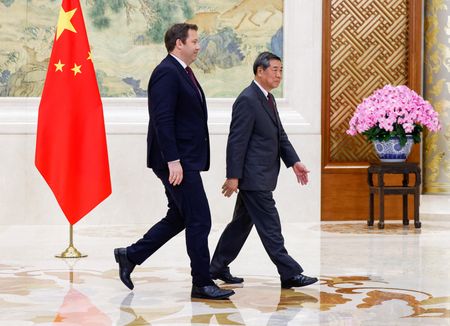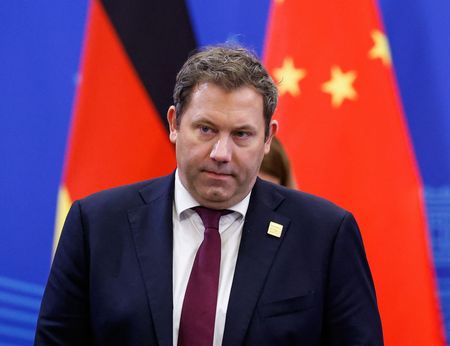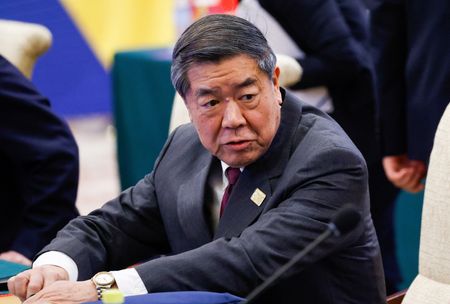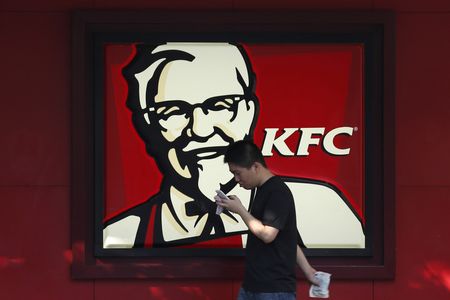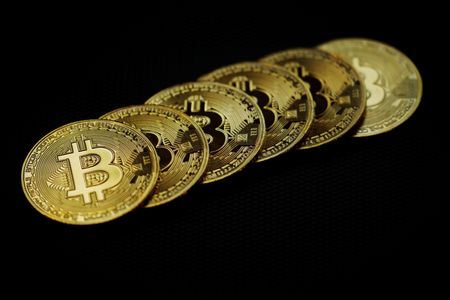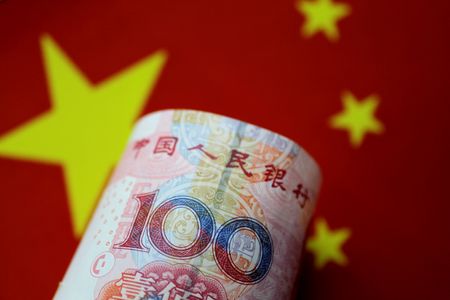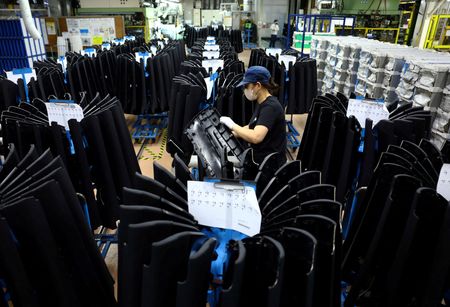BEIJING (Reuters) -China’s Vice Premier He Lifeng and German Finance Minister Lars Klingbeil said the two countries should strengthen their commercial ties and bring an end to months of trade tensions between the world’s second- and third-largest economies.
Klingbeil is making the first visit by a minister from Chancellor Friedrich Merz’s government, more than six months after the conservative-led coalition took office, and following a cancelled trip by Foreign Minister Johann Wadephul last month after China rejected all but one of his requested meetings.
Ties between the two industrial powerhouses have been strained over Chinese export curbs on chips and rare earths, causing major disruptions for German firms.
“We should exploit untapped potential and expand China-German cooperation, and hope that both sides will strengthen the alignment of their respective development strategies,” He said, while calling on the world’s second-largest economy to ensure fair conditions with Berlin.
Klingbeil arrived in Beijing less than a week after Germany’s parliament appointed an expert commission to rethink trade policy toward China.
“We are committed to working with Germany to foster a fair, equitable and non-discriminatory business environment,” He said after their meeting.
‘CHALLENGES OF OUR TIME’
For all the friction over Beijing’s support for Russia and its actions in the Indo-Pacific, and Berlin’s vocal criticism of China’s human rights record and state-subsidised industrial policy, the two countries remain bound by a vast and mutually advantageous commercial relationship.
Their economic ties have become even more crucial as U.S. President Donald Trump’s tariffs squeeze global markets.
“Germany and China together can find answers to the challenges of our time,” Klingbeil said, while calling on Beijing to work with Berlin to end the war in Ukraine, stating that China could play a key role.
China bought $95 billion worth of German goods last year, around 12% of which were cars, Chinese data shows, putting it among the $19 trillion economy’s top 10 trading partners. Germany purchased $107 billion of Chinese goods, mostly chips and other electronic components.
But Berlin stands out for China as an investment partner, having injected $6.6 billion in fresh capital in 2024, according to data from the Mercator Institute for China Studies, accounting for 45% of all foreign direct investment into China from the European Union and the United Kingdom.
For Berlin, China represents a practically irreplaceable auto market, and is responsible for almost a third of German automakers’ sales. German chemicals and pharmaceuticals firms also have a large presence in the country, although they are facing increasing pressure from domestic competitors.
FRACTIOUS POLITICAL RELATIONSHIP
Both export-oriented economies have been hit hard by Trump’s tariffs, which in turn led China to overtake the U.S. as Germany’s largest trading partner in the first eight months of the year.
But this economic interdependence comes with a fractious political relationship.
Germany’s foreign minister has struck an increasingly tough stance on China since he took office in May, going even further than his predecessor Annalena Baerbock, who labelled Chinese President Xi Jinping “a dictator.”
Merz is also expected to visit China soon.
(Reporting by Maria Martinez and Liz Lee; Writing by Joe Cash; Editing by Saad Sayeed)

